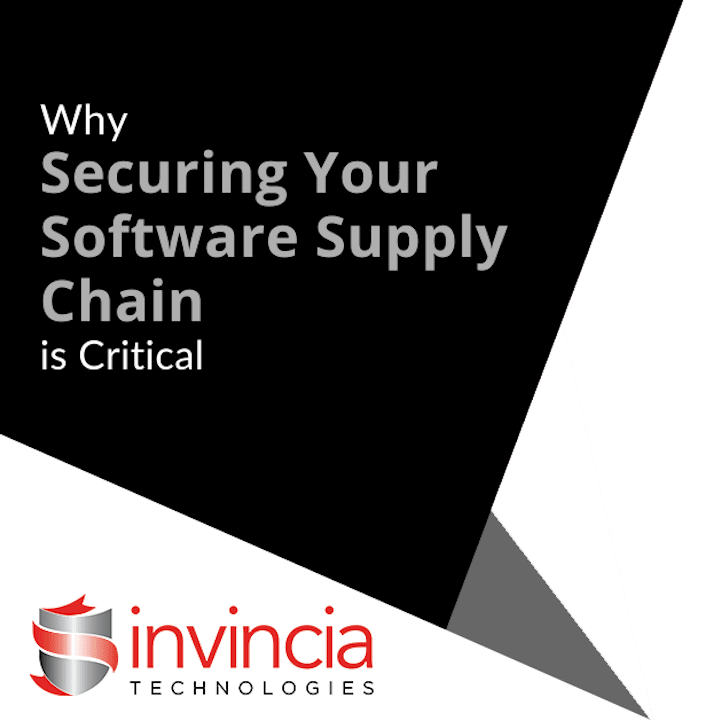In today’s interconnected world, businesses rely heavily on software, whether installed locally or accessed via the cloud. Protecting the entire process involved in creating and delivering that software is essential. From the tools developers use to the way updates are deployed, every step matters. A security flaw at any point in this chain can lead to serious problems.
A recent example is the global IT outage in July, which affected airlines, banks, and other businesses. The cause? A faulty update from a software supplier, CrowdStrike, which plays a key role in many software supply chains.
So, how can you prevent such supply chain issues? Let’s explore why securing your software supply chain is critical.
- Growing Complexity and Dependence
Multiple Components
Modern software depends on various components, including open-source libraries, third-party APIs, and cloud services. Each of these introduces potential vulnerabilities. Ensuring the security of every component is crucial to keeping your systems safe.
Continuous Integration and Deployment
The use of continuous integration and deployment (CI/CD) speeds up software development by frequently updating and integrating software. However, this also raises the risk of introducing vulnerabilities. Securing the CI/CD process is key to preventing malicious code from slipping through.
- Increasing Cyber Threats
Targeted Attacks
Hackers are increasingly targeting software supply chains to access multiple systems through a single trusted source. This approach is often more effective than attacking well-protected systems directly.
Advanced Techniques
Cybercriminals use sophisticated methods, such as advanced malware and zero-day vulnerabilities, to exploit weaknesses in the supply chain. These attacks can be hard to detect and mitigate, requiring a strong security posture to defend against them.
Financial and Reputation Damage
A successful breach can result in heavy financial losses and damage to your company’s reputation. Recovering from such incidents can be both costly and time-consuming, making proactive supply chain security a must.
- Regulatory Requirements
Compliance Standards
Industries such as healthcare, finance, and tech are subject to strict security regulations like GDPR, HIPAA, and CMMC. Failure to secure the software supply chain can lead to costly penalties.
Vendor Risk Management
Companies are required to manage risks associated with their vendors by ensuring that suppliers follow security best practices. Regularly evaluating vendor security measures helps maintain compliance and reduce vulnerabilities.
Data Protection
Data privacy laws demand that businesses protect sensitive information. A secure supply chain plays a critical role in preventing unauthorized access to this data, particularly in industries where breaches can have serious legal and financial consequences.
- Business Continuity
Preventing Disruptions
A secure software supply chain reduces the risk of operational disruptions caused by cyberattacks. Downtime due to attacks can affect productivity and revenue, so protecting the supply chain is vital to maintaining smooth business operations.
Maintaining Trust
Customers and business partners expect reliable and secure software. A security breach can erode trust and harm your relationships with stakeholders. By safeguarding your supply chain, you can retain that trust.
Steps to Secure Your Software Supply Chain
Implement Strong Authentication
Use strong authentication methods like multi-factor authentication (MFA) and access controls to secure all parts of the supply chain. Limit access to critical systems and data to authorized personnel only.
Roll Out Updates in Phases
Always keep software up to date, but apply patches gradually. Test updates on a few systems first, and if they work smoothly, then roll them out to the rest of your infrastructure.
Conduct Security Audits
Regular security audits help identify and address vulnerabilities within your supply chain. Assess the security measures of your vendors and partners to ensure ongoing compliance with industry standards.
Adopt Secure Development Practices
Incorporate secure coding practices, such as code reviews and penetration testing, throughout the development process. Integrating security from the start helps reduce vulnerabilities.
Monitor for Threats
Implement continuous monitoring tools, like intrusion detection systems (IDS) and security information and event management (SIEM) solutions, to detect and respond to potential threats in real time.
Train Your Team
Educate your team on the importance of supply chain security. Ensure that developers, IT personnel, and managers understand their roles in protecting the supply chain.
Get Support with IT Vendor Management
Securing your software supply chain is no longer optional. The consequences of a breach or system outage can be devastating for your business. Taking steps to protect your supply chain is crucial for long-term resilience.
Need assistance with managing IT vendors or securing your digital supply chain? Reach out to us today, and let’s discuss how we can help.

